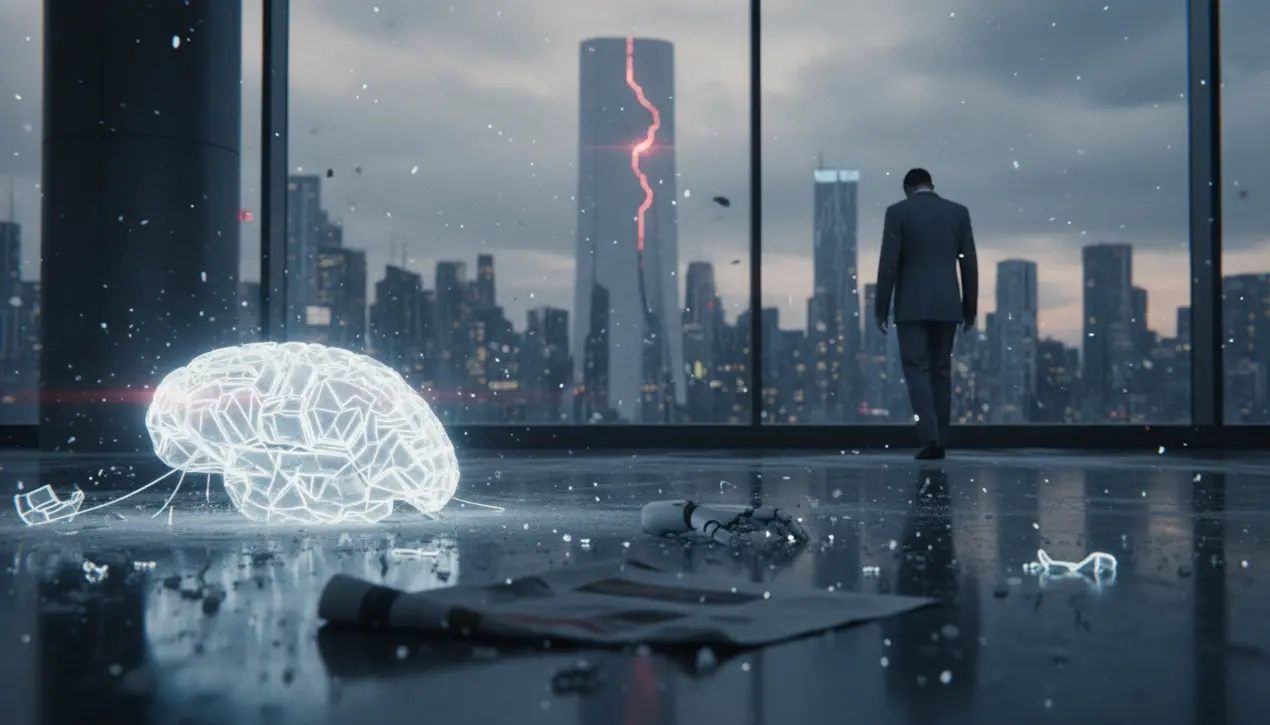
AIenterprise aiAI in Finance and Banking
Google CEO: If AI bubble pops, no one is getting out clean.
MI
Michael Ross
2 hours ago7 min read
In a stark warning that reverberated through the corridors of global power and Silicon Valley boardrooms, Google CEO Sundar Pichai has articulated a sobering truth for our nascent AI era: should the speculative bubble surrounding artificial intelligence burst, the ensuing fallout would be a universal contagion, leaving no company, not even his own tech behemoth, unscathed. This isn't merely a corporate leader hedging bets; it's a profound admission from a central architect of our digital future, echoing the grim specter of the dot-com collapse where the high-flying dreams of a generation of internet startups evaporated almost overnight, vaporizing trillions in market value and leaving a landscape littered with bankruptcies.Pichai’s statement, stripped of the typical Silicon Valley triumphalism, serves as a crucial pressure test for the current market frenzy, where valuations for AI-centric firms have skyrocketed on promises of revolutionary large language models and autonomous agents, often with revenue models as yet unproven. The parallels are unnerving: then, it was 'eyeballs' and 'click-through rates'; today, it's 'parameters' and 'inference costs,' but the underlying dynamic of speculative investment outpacing tangible, sustainable utility remains a dangerous constant.From an ethical and policy perspective, this warning underscores a systemic vulnerability. We have rapidly constructed an entire economic and social ecosystem precariously balanced on the potential of a technology whose long-term implications and commercial viability are still being mapped.A sudden pop would not just mean corrected stock prices; it could trigger a catastrophic loss of confidence, stalling critical research and development in non-superfluous applications like medical diagnostics and climate modeling, and potentially inviting a heavy-handed regulatory backlash that could stifle innovation for a decade. The conversation must urgently shift from a gold-rush mentality to one of resilient infrastructure.Just as Isaac Asimov’s Three Laws of Robotics were a fictional framework designed to ensure the safe integration of intelligent machines into human society, we now require a real-world 'First Law' for AI economics: an investment and development strategy must not, through either hype or negligence, allow a systemic collapse that harms the broader technological and human ecosystem. The path forward demands not blind optimism, but a measured, sober assessment of risks and opportunities, building an AI future that is robust, equitable, and capable of withstanding the inevitable market corrections, lest we all find ourselves, as Pichai fears, covered in the same indelible stain of a broken promise.
#featured
#AI bubble
#Sundar Pichai
#Google
#market risk
#dotcom comparison
#enterprise AI
Stay Informed. Act Smarter.
Get weekly highlights, major headlines, and expert insights — then put your knowledge to work in our live prediction markets.
Related News
Comments
Loading comments...
© 2025 Outpoll Service LTD. All rights reserved.